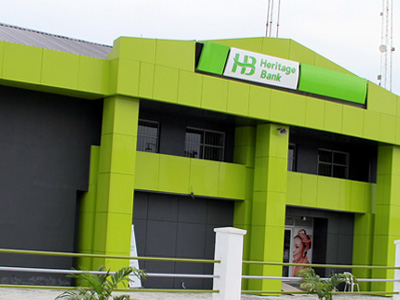
The board of Ecobank Transnational Incorporated Plc, on Monday, presented its unaudited financials for the first quarter ended March 31, 2022, with highlights such as a 15% growth in gross earnings to N245.4bn from N214.282bn; of which profit after tax galloped 26% up to N38.3bn from the previous N30.493bn, which translated to earnings per share of 111.9 kobo, up from 84.085 kobo.
According to the result for the period, interest income amounted to N156.132bn, 12% better, when compared to the previous N139.109bn, driven by the N85.709bn income from customer loans and advances, up from the previous N71.76bn; while interests on investment securities followed with N42.277bn, up from N42.205bn. Interest stood at N56.825bn, a 30% growth over the previous first quarter’s N43.762bn, N34.569bn of which came from expense paid to customers, up from N24.182bn; resulting in net interest income of N99.307bn from N95.347bn.
Fee and commission income improved by 22% to N55.476bn from N45.62bn, buoyed by cash management and related fees of N22.677bn, compared to the preceding first quarter’s N20.086bn; followed by N15.234bn from credit related fees and commissions, which increased from N12.626bn. Fee and commission expense increased by 32% from N5.346bn to N7.045bn, the lion’s share of which was the N6.781bn in other fees paid, compared to N5.211bn in the corresponding period of 2021. Net trading income was up 16% from N25.801bn to N29.869bn, being the N15.853bn from foreign exchange, a drop from the previous N21.511bn; and N14.016bn in trading income on securities, up from N4.29bn. Net investment income jump 95% from N877.494m to N1.707bn, being net gains from investment securities; just as other operating income leaped to N5.342bn to N2.223bn. These left a non-interest revenue of N82.233bn from N69.288bn; resulting in operating income growth from N164.636bn to N181.54bn.
Staff expenses rose to N46.898bn from N43.407bn; depreciation and amortization stood at N10.684bn from N10.517bn; other expenses amounted to N105.318bn from N97.626bn. Operating profit before impairment charges and taxation rose 14% up from N67.009bn to N76.222bn. Impairment charges on financial assets dropped from N22.799bn to N20.997bn, comprising the N26.615bn impairment charge on loans and advances, which dropped slightly from N26.737bn; the impact of which was again mitigated by the N9.158bn in recoveries, up from N7.553bn; while impairment charge on other financial assets stayed flat at N3.541bn, from N3.614bn. This left an operating profit after impairment charges of N55.224bn, 25% up from N44.21bn in the corresponding period of 2021. Net monetary loss arising from hyperinflationary economies amounted to N3.153bn, down 19% from N3.875bn. the share of post-tax results from associates was nil, compared to N8.043bn in the corresponding period of last year. Profit before tax therefore amounted to N52.07bn, 29% better than the previous N40.342bn; just as tax expense increased 32% to N13.746bn from N10.379bn.
A further breakdown of the figures by geographical regions, showed that growth was driven from the group’s operations outside of Nigeria. While the Nigerian operations contributed a lean N14.242bn and N2.747bn to net interest income and PBT; it came far behind the N34.552bn and N23.054bn from the Francophone West Africa (UEMOA); while Anglophone West Africa (AWA) pulled N33.468bn and N23.934bn; followed by N28.807bn and the N24.577bn from Central, Eastern and Southern Africa (CESA).
A further breakdown of the result by business segments showed that corporate and investment banking contributed the lion’s share of N60.191bn to net interest income, and N44.079bn to PBT; followed from afar by consumer banking’s N24.531bn and N9.429bn respectively; while commercial banking recorded N21.787bn and N7.526bn.
On the balance sheet, total assets fell 4% down to N11.265tr, compared to N11.689tr as of the 2021 full-year ended December 31 of which customer loans and advances slipped 5% to N3.873tr, from N4.061tr; just as total liabilities fell from N10.771tr to N10.384tr, with customer deposits dropping by a marginal 2% to N8.195tr from N8.36tr at the end of last December.
Commenting on the result, Ade Ayeyemi, chief executive of ETI, noted the ample liquidity on the group’s balance sheet, which continues “to generate healthy levels of customer deposits while maintaining satisfactory levels of capital above internal and regulatory minimums. As a result, we are confident in the company’s positioning for growth, and will continue to invest in our digital offerings and payment capabilities while enhancing our core technology. In summary, we are pleased with our progress, and I would like to thank our customers for their trust, and all Ecobankers for their hard work towards realising our vision and remaining the bank that Africa and friends of Africa trust.”











